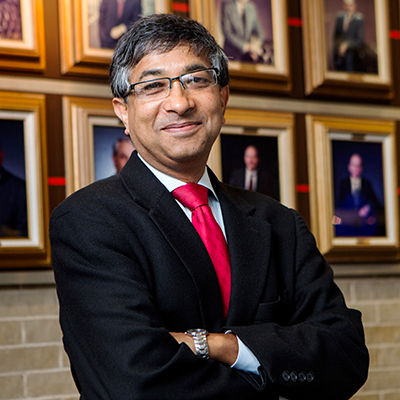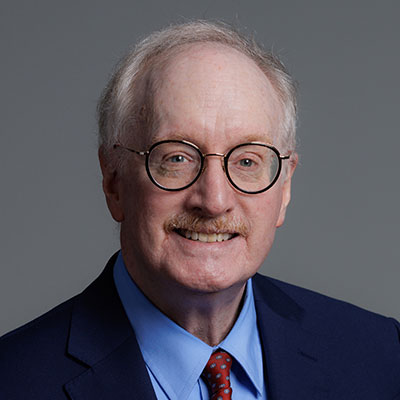About Us

Welcome message from ETI Founding Executive Director Joe Powell
Welcome to the Energy Transition Institute! The compelling challenge of our lifetime is to expand energy supply to enable a just, high standard of living for all communities, whether local or global, while also driving greenhouse gas emissions to net zero to save the planet, and reduce pollution to sustain clean water, air, land, and the environment. That’s a tall order, with massive changes in technology, systems, infrastructure, and the way we think, live and operate. With massive change comes immense opportunity.
Houston is a global leader in energy and petrochemicals, and leading the Energy Transition is essential for its future. Let’s work together to make that happen! Whether you are a Student, University Researcher or Administrator, or from industry or a startup or national lab, let U of H -- THE Energy University and the ETI help you to connect, collaboration, and thrive in the transition!
About the Institute
The Energy Transition Institute is an academic research institute focused on the advancement of reliable, affordable, environmentally responsible energy for all through a just and equity-driven pathway. We know that climate change impacts vulnerable communities in particular. These are the communities that the University of Houston serves, educates and engages, and we aim for our work and this institute to benefit those communities. The Institute focuses on three verticals: carbon management, hydrogen and circular plastics. The gift by Shell USA, Inc. and Shell Global Solutions US, Inc. supports the Hydrogen work stream, which has strategic importance to Shell and creates an opportunity for University of Houston to build an industry alliance that is distinguished from its peers.
Across those verticals, we have four work streams which define our university and our competitive advantage. We track and measure institute progress along these work streams. The activities of the Center for Carbon Management in Energy and the Consortium for Energy CSR synergize with the activities of the UH Energy Transition Institute.
Our Leadership
Dr. Ramanan Krishnamoorti, Vice President of Energy and Innovation
 Dr. Ramanan Krishnamoorti is the Vice President of Energy and Innovation at the University of Houston. Prior to his current position, Krishnamoorti served as interim vice president for research and technology transfer for UH and the UH System.
Dr. Ramanan Krishnamoorti is the Vice President of Energy and Innovation at the University of Houston. Prior to his current position, Krishnamoorti served as interim vice president for research and technology transfer for UH and the UH System.
During his tenure at the university, he has served as chair of the UH Cullen College of Engineering’s chemical and biomolecular engineering department, associate dean of research for engineering, professor of chemical and biomolecular engineering with affiliated appointments as professor of petroleum engineering and professor of chemistry. Dr. Krishnamoorti obtained his bachelor’s degree in chemical engineering from the Indian Institute of Technology Madras and doctoral degree in chemical engineering from Princeton University in 1994.
Dr. Joe Powell, Founding Executive Director
 Joe Powell (Joseph B. Powell, PhD) joined U of H in Fall 2022, is Fellow and former Director of the American Institute of Chemical Engineers and served as global Shell’s first Chief Scientist – Chemical Engineering from 2006 – 2020, culminating a 36-year industry career where he led R&D programs in new chemical processes, biofuels, enhanced oil recovery, and advised on strategy for the energy transition to a net-zero carbon economy.
Joe Powell (Joseph B. Powell, PhD) joined U of H in Fall 2022, is Fellow and former Director of the American Institute of Chemical Engineers and served as global Shell’s first Chief Scientist – Chemical Engineering from 2006 – 2020, culminating a 36-year industry career where he led R&D programs in new chemical processes, biofuels, enhanced oil recovery, and advised on strategy for the energy transition to a net-zero carbon economy.
He is co-inventor on more than 125 patent applications (60 granted), has received AIChE / ACS / R&D Magazine awards for Innovation, Service, and Practice, and is co-author of Sustainable Development in the Process Industries: Cases and Impact (2010).
He chaired the U.S. Department of Energy Hydrogen and Fuel Cell Technical Advisory Committee (HTAC) and was elected to the U. S. National Academy of Engineering (2021) after serving two terms on its Board on Chemical Sciences and Technology. Dr. Powell obtained a PhD from the U. Wisconsin-Madison (1984); and a BS from the U. Virginia (1978), both in chemical engineering.